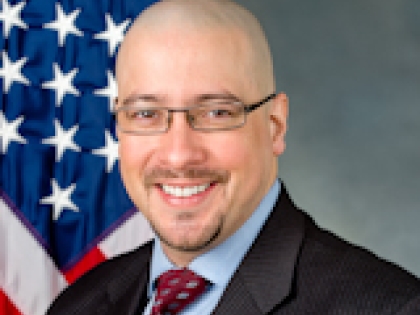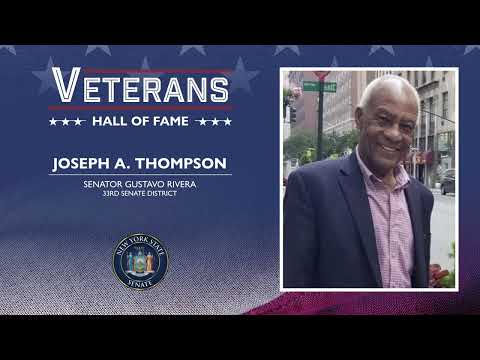
Riders, Elected Officials, Community Groups, and TWU Local 100 Announced “Bring Back Our Buses and Subways” Campaign
Gustavo Rivera
July 25, 2012
-
ISSUE:
- Unions
New York, NY—Riders, elected officials, community groups, and TWU Local 100 gathered for a press conference at 12noon on Tuesday, July 24th, 2012, on the steps of City Hall. The coalition announced their formation of a new campaign—Bring Back Our Buses and Subways—to pressure the MTA to restore all transit services that were cut in 2010.
Since 2010, members of the coalition have been collecting thousands of signatures demanding the restoration of these transit cuts, which included the reduction or elimination of 36 bus routes, 570 bus stops, over 100 station booths, two subway lines, and two contracts with Access-A-Ride operators. These service cuts especially impacted our city’s most vulnerable — our students, our elderly, and our disabled.
On July 19th, the MTA released its plan to spend $29 million to restore some of its 2010 service cuts. The Bring Back Our Buses and Subways campaign insists that all, not just some, of the transit cuts must be restored.
The elected officials in attendance at the July 24th, 2012, press conference were: State Senator Adriano Espaillat and Gustavo Rivera; State Assemblymembers William Colton, Rafael Espinal, Hakeem Jeffries, N. Nick Perry, and Helene Weinstein; Councilmembers Gale Brewer, Leroy Comrie, Elizabeth Crowley, Letitia James, and James Sanders; District Leaders Olanike Alabi, Rodneyse Bichotte, and Robert Cornegy; and representatives from the Offices of Congresswoman Nydia M. Velazquez, Assemblymember Eric Stevenson, and District Leader Costa Constantinides.
STATEMENTS FROM SUPPORTERS
Congresswoman Rep. Nydia M. Velázquez: “While the recent funding restorations are a step in the right direction, much more must be done. Queens, for instance has 42% of funding cuts that haven’t been restored and neighborhoods like Red Hook, Sunset Park, Bushwick and East New York continue to be plagued by inadequate service. Working families rely on public transportation and it is time to fully reverse the 2010 cuts that have so harmed our communities.”
Senator Gustavo Rivera: "I am glad that the MTA has taken an important step by restoring service in areas where individuals depend on mass transit to get to and from work each and every day. As a representative in the Bronx, I am particularly glad that weekend service on the BX34 that runs through my district, has been restored. But we have a long way to go to ensure that affordable mass transit is safe in New York City, which includes taking action at a state level to adequately fund public transportation."
Assemblymember William Colton: "The reductions of bus service to our neighborhood such as the B64 and the B82 as well as express bus service and others such cuts have severely hurt seniors, persons with disabilities, students, and small neighborhood businesses. I have been fighting to get the MTA to reverse these cuts which are so detrimental to our families. I have recruited community groups, churches, synagogues and community leaders, including the TWU Local 100 to demand the MTA restore their hurtful bus service cuts to our neighborhood."
Councilwoman Sara M. González: “While I applaud the MTA for bringing some measure of relief to Red Hook residents, I am still concerned about the ill-conceived cuts from 2010 that continue to plague my constituents in Sunset Park as well as areas in the immediate vicinity and throughout the City. New York City residents deserve the ability to get to work, school, medical appointments and social engagements with the least amount of hassle and delay.”
John Samuelsen, TWU Local 100 President: “I want to thank the MTA Board for moving in the right direction to bring back services for some of our communities. But the fact remains that the MTA reversed only a third of the services cut in 2010. The Transport Workers Union is committed to continue working with the riders and communities of New York City to restore all of the 2010 transit cuts. We will never stop organizing with riders in working class communities until all the ser-vice cuts are reversed.”
Murad Awawdeh of UPROSE: “In 2010, the B37 line was cut. It was the only bus line in the neighborhood that serviced in close proximity to schools, work, places of worship, after school programs, daycare centers, Lutheran Medical Center, Lutheran Family Health Center Clinics and the surrounding senior centers. The elimination of the bus service adversely impacted the elderly, disabled, families, youth, and persons with chronic illnesses as they disproportionately relied on the bus to access their health services and traveling to city agencies in downtown Brooklyn. Station Booths and Station Agents were also removed from the south-bound side of the N/R lines in our neighborhood in 2010. We have found a correlation between the lack of Station Booths and a rise in assaults within stations.”
Jacob Carlson of WEACT for Environmental Justice: “The restored service does not come to Harlem or Washington Heights. The Bx13 makes a couple of stops by the George Washington Bridge, before going through the Bronx. Otherwise, Harlem and Washington Heights are completely left out of the service restorations. Of the service not restored, the M3, M5, M10, M15, M18, and M104 all serve Northern Manhattan. The M18, which was cut entirely, was particularly important for seniors, people with disabilities, and parents with strollers living near Convent Avenue, who could not walk to other bus lines, or had difficulty with the stairs, since most of our subway stations do not have elevators. Also, without the restoration of station booths, our stations remain a security risk for many who travel home after the night shift.”
Bernard Cylich of Co-Op City Coalition Against MTA Cuts: “Co-op City is the largest community in the northern region of New York City, and the bus service cuts have affected two-thirds of the community. The MTA should bring back the Bx26 and Bx28 bus services that had formerly served hospitals, schools, and colleges in our community. We demand improved transportation for our residents, businesses, and visitors.”
Jacques Leandre of the Southeast Queens Young Democrats: “Our coalition believes that all of New York City’s working-class communities deserve safe, reliable, affordable, and accessible public transportation. We are committed to continue organizing in our neighborhoods to reinstate all the bus and subway services that we lost in 2010.”
Oraia Reid, founding member of New Yorkers For Safe Transit: “As the only coalition of advocates dedicated to addressing sexual harassment and assault in NYC’s mass transit, we are greatly concerned that the MTA budget cuts drastically affected the personal safety of all transit riders. Eliminating hundreds of token booth clerks, along with the lack of working security equipment such as security cameras, public address systems and payphones, significantly diminished the safety of transit riders. We implore the MTA to re-open token booths, repair and install necessary security equipment and to place a high value on transit rider safety.”
Helen Rosenthal, Upper West Side community activist: “The addition of a new bus route connecting several communities on Manhattan's West Side is a huge win for the thousands of New Yorkers who live and work in our City; however, it does not replace the loss of MTA customer representatives and booths from subway stations. The public support for the MTA's announced restorations speaks strongly to successful organizing by community leaders throughout the City, seeking to push for improvements in service, safety and accessibility. With this momentum at our backs, it's important that now more than ever, we continue to push for additional investments in our public transit.”
